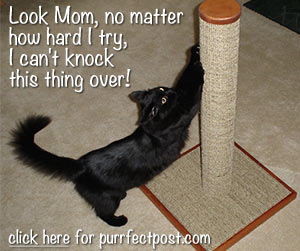Hypertrophic Cardiomyopathy: HCM in Cats

Hypertrophic cardiomyopathy (HCM) is the most common type of heart disease in cats. HCM ("enlarged heart muscle disease") is an inherited disorder in which the muscular walls of the heart become abnormally thickened.
HCM typically affects cats in the young adult years, between 1–5 years of age, although cases can emerge as early as 3 months or as late as 10 years. HCM has a strong familial link, with increased prevalence occurring in certain breeds (Maine Coon Cats, ragdolls, British shorthairs, American shorthairs, and Devon rexes). Domestic shorthairs are affected too, with prevalence slightly higher in males than in females.
Progression of HCM in Cats
Over time, HCM causes the heart muscle to thicken and become infiltrated by fibrous scar tissue. This alters the structure and function of the heart in several ways. Changes in the heart muscle make the right and left ventricles less stretchy and compliant. This means less blood fills the heart between contractions. Less filling means a weaker pump. Blood begins to back up "upstream" into the right and left atrium, causing them to stretch abnormally. Changes in the heart shape make heart valves leaky (causing audible heart murmurs, if present) and further decrease the heart's pumping power.
Many, even most, cats with HCM live their lives with clinically silent disease. Cats are notoriously good at taking it easy on themselves, and they hide it when they don't feel well. A stressful event (non-cardiac illness, anesthesia) or even a mild exertion (jumping to the windowsill) can be enough to tip the scale in the unlucky cases where more advanced disease is present. When complications arise, they are often sudden and severe and can often be fatal. These complications can include:
- Congestive heart failure: When the heart's pumping action fails, blood backs up first into the left and right atrium and later into the pulmonary circulation. This leads to pulmonary edema (fluid buildup in the lungs), shortness of breath, and congestive heart failure.
- Arrhythmias (irregular or fast heartbeats): Arrhythmias can develop in the diseased heart muscle. This is because the stretching and scarring of HCM disrupts normal electrical signaling in the heart. Arrhythmias can cause no symptoms, can contribute to pump weakness and congestive heart failure, or worse. Malignant arrhythmia from undetected HCM is a common cause of sudden death in cats.
- Thromboembolism (blockage caused by a migrating clot): The stretched-out left atrium is a place where blood flow stagnates and blood clots can form. Clot fragments that break loose can enter the general circulation and get stuck downstream, causing thromboembolic disease, which can result in sudden, painful paralysis.
Signs of HCM in Cats
The signs of HCM in cats are typically mild to absent, at least at the outset. Your veterinarian may identify a heart murmur or other abnormal heart sounds on physical examination. The presence of a murmur is an unreliable indicator of whether HCM is present or how severe it is. Not all cats with HCM have an audible heart murmur. Conversely, not all murmurs indicate that HCM is present.
Early signs of HCM in cats can include:
- Decreased appetite
- Reduced energy level
- No symptoms at all
Your vet might notice:
- Heart murmur
- Gallop rhythm (extra heart sound)
- Elevated heart rate
- Weight loss
Advanced signs of HCM in cats include:
- Rapid or labored breathing
- Panting or open-mouthed breathing
- Cough (unusual)
- Sudden hind leg paralysis
- Sudden death
Unlike in the dog, coughing usually is not a sign of heart disease in cats but is is more often associated with chronic bronchitis (asthma) or other lung diseases.
Diagnosis of Feline HCM
To diagnose HCM in cats, other diseases affecting the heart muscle must be excluded. These include hyperthyroidism (overactive thyroid), hypertension (high blood pressure) and anemia. Your veterinarian will perform blood work and a blood pressure measurement to rule out these problems and treat them as necessary.
An echocardiogram, which is an ultrasound of the heart, is the best means of diagnosing HCM in cats. It provides a highly detailed, real-time view of the heart's structure and function. An echocardiogram is gentle and non-invasive; however it usually requires referral to a veterinary specialist and can be costly.
Added diagnostics such as an ECG, x-rays, or blood pressure may be done by your regular veterinarian, but they are more for supporting information, not to make the diagnosis.
Two breeds, the Maine Coon and ragdoll, have been found to carry a genetic defect (called Myosin-binding Protein B) that is associated with HCM. A genetic test is now available for screening for this defective gene in these two breeds alone. Another blood test, called NT-ProBNP has recently been purported to aid in the early diagnosis of heart disease in dogs and cats. While useful in monitoring cats diagnosed with severe HCM, most experts believe it to be an unreliable screening test for early to moderate disease.
Treatment of HCM in Cats
There is no cure for feline HCM. Once the changes occur in the heart muscle, they cannot be reversed. Early treatment is aimed at helping the overly stiff ventricular wall muscles relax properly between heart beats and/or to slowing the heart beat to allow for better filling between contractions and for better blood flow to the heart muscle itself. Your veterinarian may prescribe one of a handful of oral medications such as diltiazem, a calcium channel blocker, or atenolol, a beta blocker. These are commonly used and can work well, although they are not officially licensed for cats.
Once congestive heart failure sets in, drugs are added to help with edema (fluid buildup) in the lungs and the rest of the body. These include many of the same drugs used in people and dogs with heart failure, such as diuretics and ACE inhibitors. A low-salt diet may be beneficial, as well.
Because clot formation is a worry when there is stagnant blood flow in the left atrium, cats with advanced HCM may need medications that inhibit blood clots. Low-dose aspirin is one basic choice, however newer clot-inhibiting drugs for humans, such as Plavix®, are starting to be used in cats. Exercise restriction may be recommended as well. Never give your cat aspirin or any other medication unless under strict instructions from your veterinarian.
Prognosis for Feline HCM
The outlook for cats diagnosed with HCM varies dramatically. In some cases, HCM worsens quickly once diagnosed; in other cases, cats with mild disease may live symptom-free for years. The prognosis is directly related to the severity of the disease and its complications, if present. Once signs of congestive heart failure set in, the life expectancy is 18 months or less. Survival rates for cats with thromboembolic disease secondary to HCM are poor. Cats have a less than 40% chance of surviving a first thromboembolic event, and if they do survive, reoccurrence is likely to happen within weeks to months.
Prevention of HCM in Cats
Since HCM is a genetic disease, the best way to prevent it is through screening and selective breeding programs. As mentioned previously, a new genetic screening test exists for Maine Coon and ragdoll cats. Your veterinarian or a veterinary geneticist are the best resources for more information. Once a cat is diagnosed with HCM, it's wise to have any known siblings tested too. While it's too late to prevent HCM in these individuals, early diagnosis is the key to keeping a cat's heart healthy longer.
You May Also Like These Articles:
Flame Retardants and Hyperthyroidism in Cats
Saddle Thrombus: Aortic Blood Clots in Cats
Cat Hearts: The Feline Cardiovascular System
Notice: Ask-a-Vet is an affiliated service for those who wish to speak with a veterinary professional about their pet's specific condition. Initially, a bot will ask questions to determine the general nature of your concern. Then, you will be transferred to a human. There is a charge for the service if you choose to connect to a veterinarian. Ask-a-Vet is not manned by the staff or owners of CatHealth.com, and the advice given should not delay or replace a visit to your veterinarian.






